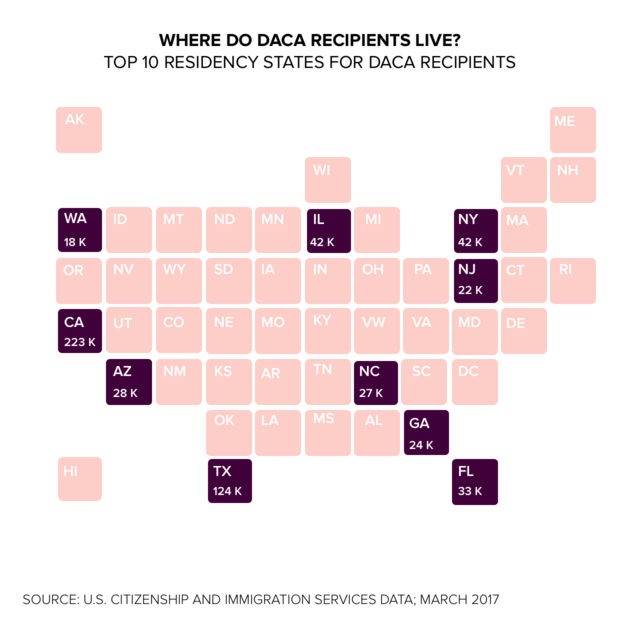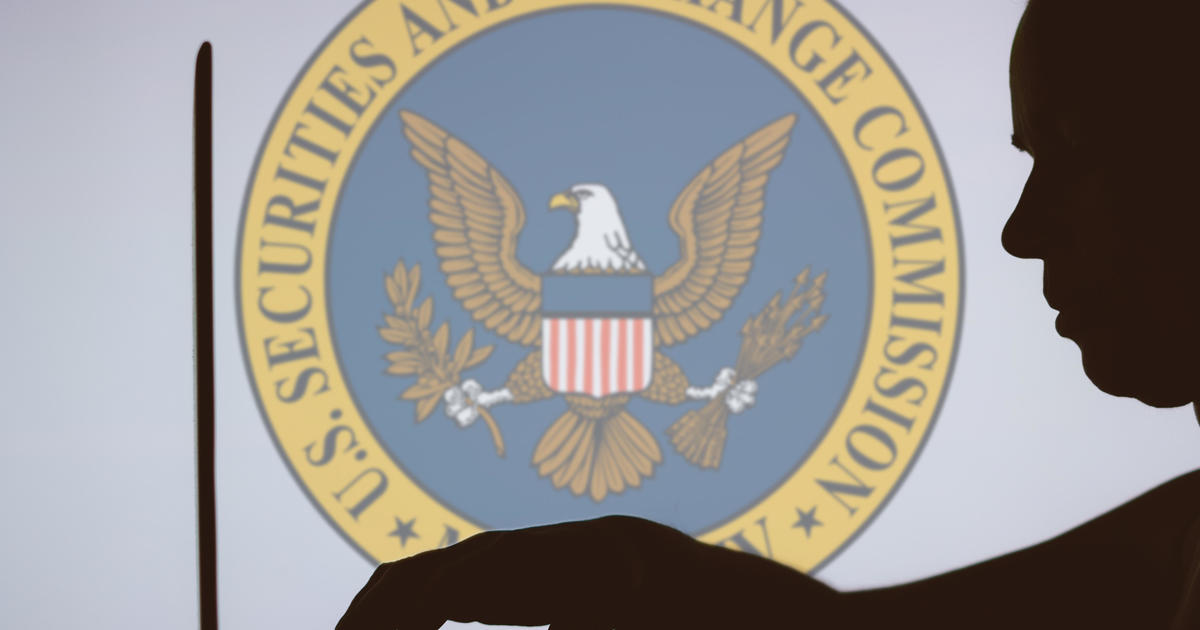"We are all scared": "Dreamers" face job risk and worse
Rainy Leonor-Lake, a so-called "dreamer" who came to the U.S. from the Dominican Republic when she was 6, credits the Deferred Action for Childhood Arrivals (DACA) program for putting her life on a new path.
"I remember feeling very frustrated and hopeless when I graduated from high school because I did not know what was next for me," she recalled. "I was stuck in a house for 24 hours a day without being able to work or go to school."
When President Barack Obama enacted DACA in 2012, the program was life-changing, she said: "It meant I could go to school and maintain myself economically."
Now 23, Leonor-Lake enrolled in Reading Area Community College in Pennsylvania and found a job at Burger King. Soon, she said, she was juggling three jobs to support herself and pay for college.
Leonor-Lake, who is continuing with her college studies while working for the working-class and Latino rights group Make the Road Pennsylvania, is one of the roughly 800,000 "dreamers" who have received work permits and delayed deportation through the DACA program. Their lives now face a deep measure of uncertainty following Attorney General Jeff Sessions' announcement on Tuesday that the Trump administration intends to officially rescind DACA.
"We are all scared about what's going to happen in six months and about our ability to keep working, going to school and driving," Leonor-Lake said.
Dozens of businesses have voiced their support for the program in recent days, including Microsoft (MSFT), which said it has at least 39 employees who are protected by the program. Dreamers have a higher rate of small-business creation than the overall population and almost all of them are either working or in school, according to a recent survey. The American economy could lose as much as $460 billion over a decade by removing these workers from the economy, the Center for American Progress said.
"We think 30,000 people could lose their jobs every month" because of the decision to end DACA, said Laura Huizar, staff attorney at the National Employment Law Project. "Regardless of how it's phased in, this decision will cost the economy billions in lost productivity, decreased tax revenue, turnover and more."
She added, "We are encouraging employers to stand by their employees regardless of what happens. It could mean standing by your employees in case of a deportation action."
Microsoft said it would back its dreamer employees. In a blog post, Microsoft chief legal officer Brad Smith described President Donald Trump's decision as "a big step back for our entire country."
"If Congress fails to act, our company will exercise its legal rights properly to help protect our employees," Smith wrote. "If the government seeks to deport any one of them, we will provide and pay for their legal counsel."
About 9 out of 10 DACA recipients are currently working, according to a report from the Center for American Progress that surveyed more than 3,000 DACA recipients. Many of those who aren't working are in school.
Receiving work authorization through DACA helped 69 percent of the respondents move to a job with better pay, while others reported finding jobs with better working conditions and that fit their training better. About 8 percent of DACA recipients over the age of 25 have started their own businesses, or more than double the overall U.S. rate of 3.1 percent, the report found.
The 800,000 Dreamers who have benefited from the program "will become instantly deportable and lose the ability to work legally and contribute to the United States, and will be effectively left without labor rights and employment law protections in the workplace," noted Daniel Costa, director of immigration law and policy research at the Economic Policy Institute, a left-leaning economic think-tank, in a blog post.
While DACA recipients work across industries, they tend to be clustered in a handful of states. California has the largest share of DACA recipients, with about 223,000 approvals in the state. Texas and New York have the second- and third-highest population of DACA recipients, at 124,000 and 54,000, respectively.
Because DACA recipients are largely in the workforce and paying taxes, revoking the program could hurt the economy and crimp local and federal tax coffers. Removing DACA recipients from California's workforce could cost the state an estimated $11.6 billion in annual GDP, according to the Center for American Progress.
Some applauded the decision, including the Heritage Foundation, which said the decision would protect privileges meant for U.S. citizens and legal immigrants.
"DACA is the pinnacle of non-enforcement; not only does it protect illegal immigrants from deportation, it provides benefits that by law are reserved for American citizens and legal immigrants," it said in statement.
To Leonor-Lake, the lost taxes, economic growth and personal disruption seem counterproductive.
"We've been a part of society for so long now," she said. "I can't wrap my mind around the decision. There is no benefit to the country. It's really hard to wrap my head around. As a businessman, Trump should know better."




